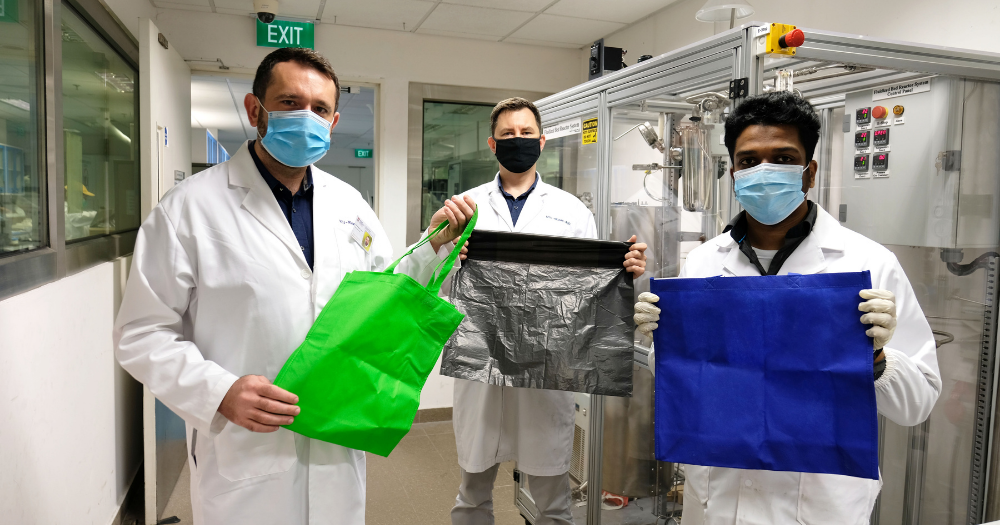A study carried out by scientists at the Nanyang Technological University (NTU) has found that single-use plastic bags are actually more eco-friendly than other types of single-use bags under certain contexts.
This is in the event that the other bags are used for only one time, and considering Singapore's waste management.
Reusable non-woven bags most sustainable
The team, led by Assistant Professor Grzegorz Lisak, Director of Residues & Resource Reclamation Centre at the Nanyang Environment and Water Institute (NEWRI), conducted a life cycle analysis of five types of bags.
Their aim was to evaluate the environmental impacts associated with each type's production, distribution, transportation, waste collection, treatment and end-of-life disposal.
The five types of bags are:
- Single-use — HDPE bags (grocery store plastic bags for example), biodegradable plastic bags and kraft paper bags
- Reusable — cotton bags, and polypropylene (PP) non-woven plastic bags
 Polypropylene non-woven bags. Photo from IndiaMART
Polypropylene non-woven bags. Photo from IndiaMART
The team discovered that of the five types, reusable PP non-woven plastic bags are the most eco-friendly — but there's a catch.
This is only in the case that reusable plastic bags are reused more than 50 times.
Followed by single-use plastic bags
The next most environmentally friendly option is the single-use HDPE plastic bag.
In comparison to cotton and paper bags, the latter two have bigger environmental footprints as they contribute more to global warming.
They also negatively impact the environment more during their production as the processes consume large amounts of water and natural resources.
Paper bags are the most environmentally unfriendly of the five, the team found.
According to the team's scientific paper, the global warming potential for cotton, paper and biodegradable plastic bags are 17, 81 and 16 times higher than that of reusable plastic bags.
Meanwhile, the global warming potential of single-use plastic bags is 14 times higher than that of reusable plastic bags.
To offset the carbon emissions generated during the production of one single-use plastic bag, a reusable plastic bag would need to be reused four times.
Specific to city context
Nevertheless, the team stressed that the study model applied specifically to urban Singapore.
It might also be applicable in other cities such as Tokyo, Hong Kong and Dubai, where waste management facilities are similar to Singapore's end-of-life incineration facilities.
Lisak said:
"It is essential to evaluate the implications case by case for dealing with plastic waste. In a well-structured closed metropolitan waste management system with incineration treatment, using plastic bags may be the best option that is currently available, provided that there is no significant leakage of waste into the environment."
Ultimately, it is best to use reusable plastic bags "to the greatest extent possible", so as to reduce consumption of single-use plastic bags.
The team added that reprocessing single-use plastic bags could be a policy goal to work towards to reduce Singapore's environmental impact.
Related stories
Totally unrelated but follow and listen to our podcast here
Top photo from NTU
If you like what you read, follow us on Facebook, Instagram, Twitter and Telegram to get the latest updates.
